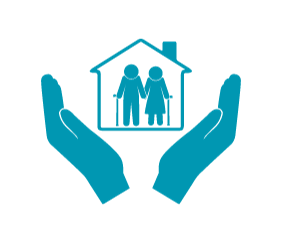Navigating the challenges that come with an aging mother can be a difficult and emotional journey. As time passes, the once strong and independent figure who raised you may start to show signs of frustration, stubbornness, or even aggression. It can be challenging to know the best way to handle these situations while still showing love and respect. In this article, we will explore effective strategies for dealing with a difficult aging mother, helping you maintain a positive relationship and provide the support she needs during this phase of life.

Understanding the Difficulties
Acknowledge the Challenges
Dealing with a difficult aging mother can be a complex and emotionally challenging situation. It is important to acknowledge and understand the difficulties that may arise as your mother ages. As she faces physical and cognitive changes, your relationship with her may become strained, and it is essential to approach these challenges with empathy and patience.
Recognize the Aging Process
The aging process brings about various changes, both physical and cognitive, that can impact your mother’s behavior and demeanor. Physical ailments, such as chronic pain or mobility issues, can contribute to her difficulty in coping with daily tasks. Additionally, cognitive decline, such as dementia or Alzheimer’s disease, may cause personality changes and memory loss. Recognizing and understanding these changes will help you better support your aging mother.
Identify the Specific Issues
To effectively deal with a difficult aging mother, it is crucial to identify the specific issues that are contributing to the challenges you are facing. Is she exhibiting signs of aggression, refusing care, or experiencing sleep disturbances? Understanding the underlying causes of these behaviors will allow you to address them more effectively and find appropriate solutions.
Consider the Emotional Impact
As you navigate the difficulties of dealing with a difficult aging mother, it is essential to consider the emotional impact it may have on both you and your mother. Aging can bring feelings of vulnerability and loss of independence, which can manifest in frustration, anger, or sadness. Recognizing and validating these emotions can help foster better communication and understanding between you and your mother.
Establishing Effective Communication
Listen Actively and Empathetically
One of the key foundations for dealing with a difficult aging mother is to actively listen to her concerns and emotions. Give her the space to express herself and validate her feelings. By actively listening with empathy, you can demonstrate your understanding and create a safe environment for open communication.
Express Yourself Clearly and Calmly
When you communicate with your aging mother, it is crucial to express yourself clearly and calmly. Be mindful of your tone of voice and body language, as it can greatly affect the message you convey. Using simple language and avoiding confrontational or accusatory statements will help minimize misunderstandings and promote effective communication.
Use Non-Verbal Communication
Non-verbal communication can play a significant role in effectively dealing with a difficult aging mother. Utilize gentle touch, smiles, and eye contact to convey warmth and reassurance. Engaging in non-verbal communication can help bridge gaps caused by cognitive decline and improve overall understanding between you and your mother.
Seek Professional Mediation if Needed
If communication difficulties persist, seeking professional mediation can be a valuable option. A therapist or counselor experienced in working with family dynamics can provide a neutral space for all parties to express their concerns and facilitate more productive communication. Professional mediation can offer guidance and strategies to improve your relationship with your aging mother.
Setting Boundaries and Managing Expectations
Define Personal Boundaries
Establishing personal boundaries is crucial when dealing with a difficult aging mother. Determine what behaviors or situations are acceptable and communicate them clearly. Boundaries not only help protect your well-being but also provide a framework for your mother to understand the limitations and expectations in your relationship.
Establish Realistic Expectations
While it is natural to want the best for your aging mother, it is important to establish realistic expectations. Recognize that her abilities may have changed, and certain tasks that were previously manageable may now be challenging. Adjusting your expectations with compassion and understanding will alleviate frustrations and help maintain a healthier relationship.
Practice Self-Care
Caring for a difficult aging mother can be emotionally and physically demanding. To effectively manage this responsibility, it is essential to prioritize self-care. Make time for activities that bring you joy and relaxation. Engaging in regular exercise, practicing mindfulness, and seeking support from friends or other family members can help you maintain your own well-being.
Seek Support from Family or Friends
Dealing with a difficult aging mother should not be tackled alone. Seek support from other family members or close friends who can provide guidance, share the responsibility, or simply lend a listening ear. Building a support network will help prevent feelings of isolation and ensure you have the emotional assistance necessary to navigate the challenges ahead.
Developing Patience and Empathy
Put Yourself in Her Shoes
Developing patience and empathy is essential when dealing with a difficult aging mother. Try to put yourself in her shoes, understanding the frustrations and fears she may be experiencing due to the aging process. This perspective shift can help you approach difficult situations with more compassion and lead to better communication and understanding.
Practice Deep Breathing and Stress Relief Techniques
Taking care of your own emotional well-being is vital in managing the challenges of dealing with a difficult aging mother. Practice deep breathing and other stress relief techniques such as meditation or yoga to help calm your mind and reduce anxiety. By managing your stress, you will be better equipped to respond to challenging situations with patience and empathy.
Regularly Engage in Activities Together
Regularly engaging in activities together can provide opportunities for bonding and shared experiences. Participate in activities that your aging mother enjoys and that stimulate her cognitive function, such as puzzles, painting, or listening to music. These activities can foster a sense of connection and joy, improving the overall relationship dynamics.
Seek Counseling or Therapy
If coping with the difficulties of dealing with a difficult aging mother becomes overwhelming, seeking counseling or therapy can provide valuable support and guidance. A therapist can help you navigate your emotions, develop coping strategies, and offer a safe space to address any unresolved issues. Professional assistance can equip you with the tools needed to better manage the challenges ahead.
Seeking Professional Help
Consult a Geriatric Specialist
Consulting a geriatric specialist can provide valuable insights and guidance when dealing with a difficult aging mother. These healthcare professionals specialize in the unique medical and psychological needs of older adults and can help assess your mother’s condition, recommend appropriate interventions, and ensure her overall well-being.
Consider In-Home Care Services
In-home care services can offer practical support and assistance to help alleviate the challenges of caring for a difficult aging mother. Professional caregivers can provide companionship, help with daily activities, and ensure your mother’s safety. Exploring in-home care options will allow you to prioritize her well-being while also managing your own responsibilities.
Explore Assisted Living or Nursing Homes
If the care needs of your difficult aging mother become too demanding to manage at home, it may be necessary to explore assisted living or nursing home options. These facilities provide comprehensive care, including medical supervision, assistance with daily tasks, and a supportive community for your mother. Prioritize visits and involve your mother in the decision-making process to help ease the transition.
Evaluate Legal and Financial Options
As your aging mother faces challenges, it is important to evaluate legal and financial options that protect her best interests. Consulting an attorney specializing in elder law can help you navigate legal matters such as advanced healthcare directives, power of attorney, and estate planning. Understanding her legal rights and ensuring financial stability will contribute to her overall well-being.
Addressing Safety Concerns
Ensure a Safe Living Environment
When dealing with a difficult aging mother, it is crucial to ensure she has a safe living environment. Regularly assess her living space for potential hazards such as loose rugs, cluttered walkways, or faulty electrical systems. Making necessary modifications to improve safety will provide peace of mind for both you and your mother.
Modify the Home for Safety
Modifying the home for safety can greatly reduce the risk of accidents or injuries. Install grab bars in the bathroom, secure rugs with non-slip backing, and ensure adequate lighting throughout the house. Adapting the home to her changing needs will promote independence and minimize safety concerns.
Address Medication Management
Managing medications can become challenging for aging mothers, especially if cognitive decline is present. Implementing strategies such as pill organizers or medication reminders can help ensure she takes the correct medications at the right times. Regularly review her medications with her healthcare provider to prevent any adverse interactions or unnecessary prescriptions.
Reduce the Risk of Falls
Falls are a significant concern for aging individuals, and taking preventative measures is essential. Remove tripping hazards, such as loose cables or clutter, and encourage your mother to wear appropriate footwear with good traction. Installing handrails on stairs and providing assistive devices like walkers or canes can also help reduce the risk of falls.
Coping with Challenging Behaviors
Understand the Causes for Challenging Behaviors
Challenging behaviors often arise from underlying causes, such as physical discomfort, cognitive decline, or feelings of frustration or insecurity. By understanding the root causes of these behaviors, you can respond with empathy and address the underlying issues rather than simply reacting to the behavior.
Implement Strategies for Coping with Aggression
Aggression in aging mothers can be distressing and challenging to manage. Implementing strategies such as distraction techniques, redirecting attention to positive activities, or creating a calming environment can help diffuse aggression and create a sense of safety. It is important to prioritize your own safety and seek professional advice if the aggression becomes severe.
Handle Refusal of Care
Dealing with a difficult aging mother may involve instances where she refuses care or assistance. In these situations, it is important to approach her reluctance with understanding and respect. Try to identify the underlying reasons for her refusal and involve her in decision-making processes to foster a sense of control. Seek guidance from healthcare professionals to develop alternative approaches that can help meet her needs while respecting her autonomy.
Manage Sundowning or Sleep Disturbances
Sundowning, a phenomenon in which individuals with dementia experience agitation or restlessness in the late afternoon or evening, can be challenging to manage. Establishing a consistent sleep schedule, creating a soothing bedtime routine, and ensuring a calm environment can help minimize sundowning. Consult with her healthcare provider for additional strategies or interventions to alleviate sleep disturbances.
Encouraging Independence and Autonomy
Maintain a Sense of Purpose
Encouraging your aging mother to maintain a sense of purpose can have a positive impact on her well-being. Support her in pursuing hobbies or interests that she enjoys, and involve her in decision-making processes that directly affect her life. By actively promoting her autonomy, you can empower her and foster a sense of independence.
Promote Activities that Stimulate Cognitive Function
Engaging in activities that stimulate cognitive function can help maintain cognitive abilities and slow down cognitive decline. Encourage your mother to participate in activities such as puzzles, reading, or learning new skills. This engagement will not only keep her mind active but also provide a sense of accomplishment and fulfillment.
Allow for Decision-Making and Control
As your aging mother faces challenges, it is important to involve her in decision-making processes whenever possible. Allowing her to have control over certain aspects of her life, such as daily routines or preferences, can promote a sense of autonomy and dignity. Respect her choices and provide support when needed, ensuring her voice is heard.
Support Social Interactions
Social interactions play a vital role in maintaining mental and emotional well-being. Encourage your aging mother to maintain social connections through activities such as joining clubs, attending community events, or participating in group classes. Foster opportunities for socializing with friends and family members to combat feelings of loneliness and isolation.
Prioritizing Health and Well-being
Ensure Regular Medical Check-ups
Regular medical check-ups are crucial for monitoring your aging mother’s health and detecting any potential issues early on. Accompany her to doctor’s appointments, be involved in discussions about her medical care, and maintain open communication with her healthcare provider. Regular check-ups will help ensure her health and well-being are prioritized.
Encourage a Balanced Diet and Physical Activity
Encourage your aging mother to maintain a balanced diet and engage in physical activity. A nutritionally rich diet and regular exercise can contribute to overall physical health and well-being. Offer nutritious meals and participate in physical activities together, such as going for walks or practicing gentle exercises. These healthy habits will support her overall quality of life.
Monitor Medication and Self-Care
Regularly monitor your aging mother’s medication regimen and self-care routines. Ensure she is taking medications as prescribed, manage any potential side effects, and address any concerns with her healthcare provider. Encourage her to prioritize self-care activities such as personal hygiene, adequate sleep, and proper nutrition. By monitoring medication and self-care, you can help maintain her well-being.
Address Mental Health Concerns
Mental health is an important aspect of overall well-being, and it is essential to address any concerns your aging mother may have. Encourage open conversations about her emotions and provide support if she is experiencing feelings of anxiety, depression, or loneliness. Consult with her healthcare provider to explore appropriate therapies or interventions to address and manage her mental health needs.
Acceptance and Emotional Resilience
Accept the Limitations and Changes
Accepting the limitations and changes that come with the aging process is crucial in dealing with a difficult aging mother. Embrace the reality that she may not be the same person she once was and acknowledge the challenges that arise. Acceptance allows for a more realistic and compassionate approach, fostering a stronger relationship with your aging mother.
Practice Self-Compassion
Dealing with a difficult aging mother can be emotionally challenging, and it is important to practice self-compassion. Recognize that you are doing your best and allow yourself to feel a range of emotions without judgment. Be kind to yourself and seek support when needed. Practicing self-compassion will help you stay resilient and navigate the difficulties with more understanding.
Focus on the Positive and Cherish Moments
While dealing with a difficult aging mother can be challenging, it is important to focus on the positive aspects of your relationship and cherish the moments of joy and connection. Celebrate small victories, express gratitude, and hold onto the cherished memories you share. Cultivating a positive mindset will help you navigate the difficult moments with greater resilience and appreciation.
Seek Emotional Support
Dealing with a difficult aging mother can be emotionally overwhelming, and seeking emotional support is vital. Reach out to friends, family members, or support groups who can provide a listening ear and offer guidance or validation. Consider seeking counseling or therapy to work through any unresolved emotions and develop healthy coping mechanisms. Remember, you do not have to face these challenges alone.
Dealing with a difficult aging mother is undoubtedly a challenging journey, but by understanding the difficulties, establishing effective communication, setting boundaries, and managing expectations, developing patience and empathy, seeking professional help when needed, addressing safety concerns, coping with challenging behaviors, encouraging independence and autonomy, prioritizing health and well-being, and practicing acceptance and emotional resilience, you can navigate this phase of life with compassion and understanding. Remember to prioritize your own well-being as you support your aging mother, and never hesitate to seek the assistance and guidance of healthcare professionals or support networks. Together, you can create a meaningful and supportive environment for both you and your aging mother.


